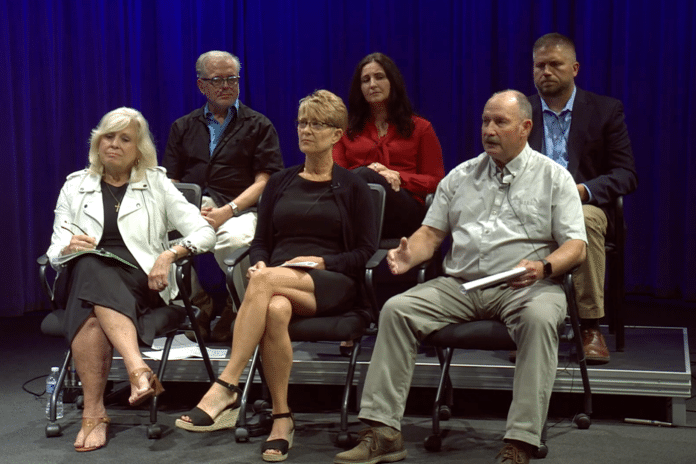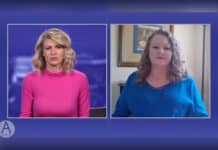
Alpha News journalist Sheila Qualls recently hosted a townhall panel discussion on the failures of Minnesota’s public education system.
Qualls is the host of the podcast “Trapped!: Chaos in the Classroom,” in which she investigates the public school system in Minnesota through interviews with students, parents, teachers, administrators, and school board members.
The townhall panel she hosted consisted of retired teachers, a school board member, a current private school educator, and a parents group director.
Most parents in the state are unaware that their kids are being cheated out of an education in public schools, and some administrators want to keep it that way, the panelists explained.
“What happens in schools, stays in schools,” Qualls said.
Debbie York is a recently retired teacher who shared her experience with a disruptive student in her first-grade classroom.
“It quickly turned dangerous,” she said. “On one particular day, I was assaulted by the student as I intervened to prevent further harm to one of the classmates.”
The child threw chairs across the room and crushed a desk into a classmate’s side, leaving her with a softball-sized bruise.
“Then he came after me and body slammed me and I fell to the floor,” York said.
Retired educator Debbie York opens up about her experience in the classroom.
Check out https://t.co/i1leGnVxsl for Sheila Qualls' tour discussing MN education.
Subscribe to “Trapped!: Chaos In The Classroom”: https://t.co/tDUvLEWHZR pic.twitter.com/4z2pNkesPc— Alpha News (@AlphaNewsMN) August 2, 2023
She evacuated the classroom. Five teachers were needed to remove the child to a safe space. Then, the next day, the child was back in school. There wasn’t a plan to prevent an assault from happening again, and the student tried to harm a classmate that very day with a pair of scissors.
“There we were, middle of the year, already over half the kids had been harmed one way or another, many physically, definitely psychologically,” York said.
The incident became one of “color and culture,” not discipline, York explained.
Simon Whitehead, a retired teacher, said losing control of the classroom is the “worst feeling in the world,” especially when administrators don’t offer support.
Retired St. Paul Public Schools educator Stephen Severance said kids often took control of the classroom environment.
“The hallways are like a jungle … no respect for each other’s space,” he said.
One of the last straws for public-turned-private-school educator Amy Frederickson was when her student was caught cheating on school security footage and faced no consequences.
“He was not asked to apologize, he did not get suspended, he got nothing but a short little talking to,” she said. “And yet I was told I could not give him a zero.”
Frederickson said her district implemented something called “Positive Behavioral Interventions and Support,” in which teachers were required to write only positive notes for students and not track the negatives.
Educator Amy Fredrickson expresses her concern with the misinformation from public schools.
Check out https://t.co/i1leGnVxsl, for info on Sheila Qualls' tour to discuss Minnesota education.
Subscribe to “Trapped!: Chaos In The Classroom”: https://t.co/tDUvLEWHZR pic.twitter.com/foxVObyyVA
— Alpha News (@AlphaNewsMN) August 5, 2023
“So that’s what the public sees, that’s what the parents see … the negatives are just not getting reported,” she said.
Minnesota Parents Alliance executive director Cristine Trooien encouraged all parents to evaluate their expectations with their children at home, and ask themselves whether those expectations are consistent with what they would want for their children’s school environment.
She believes schools will quickly become “community resource centers” with the way things are trending.
“There is a real phenomenon here that’s disturbing about outsourcing parenting,” she said. “[Parents are] expecting teachers to do the discipline, they’re expecting schools to start serving their mental health and physical health needs in some situations, and I think that’s a very slippery slope.”
Trooien stressed the need for district leadership to restore the parent-teacher connection, which has declined over the last few years.
“We know that is the number one factor in student success — a strong parent-teacher partnership,” she continued.
The panel also discussed restorative justice, social-emotional learning, gender ideology, white privilege training for teachers, and more.
WATCH:
















